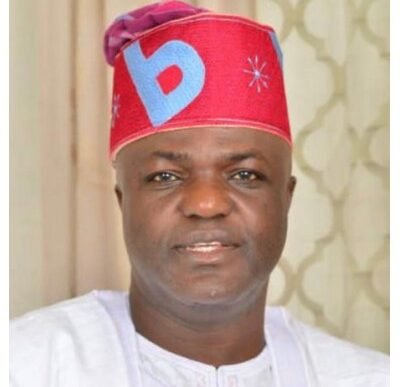HB: 2167 A BILL FOR AN ACT TO AMEND SECTION 109(1)(G) OF THE CONSTITUTION OF THE FEDERAL REPUBLIC OF NIGERIA, 1999 (AS AMENDED) TO REQUIRE THE OFFICIAL RESIGNATION FROM A POLITICAL PARTY BEFORE DEFECTION BY A MEMBER OF THE STATE HOUSE OF ASSEMBLY, AND FOR RELATED MATTERS. The Bill is sponsored by Hon. Adebayo Olusegun Balogun.
Nigeria’s National Assembly is currently engaged in discussions surrounding a key legislative measure, known as HB. 1649, which proposes a constitutional amendment to shift the responsibility for conducting Local Government Area (LGA) elections from State Independent Electoral Commissions (SIECs) to the Independent National Electoral Commission (INEC). This proposal has sparked substantial debate about its potential impact on governance and electoral integrity in the country.
Supporters of HB. 1649 argue that the bill aims to address long-standing concerns regarding the credibility of local elections in Nigeria. State Independent Electoral Commissions have faced criticism for being susceptible to political influence from state governors and ruling parties. This perceived lack of independence has raised questions about the transparency and fairness of the elections overseen by SIECs. By transferring oversight to INEC, which is seen as a more impartial entity with greater public trust, proponents believe the integrity of local elections could be significantly enhanced.
In addition to improving credibility, advocates for the bill emphasize the importance of uniformity in electoral processes. If INEC is entrusted with managing elections at all tiers—federal, state, and local—it is expected to establish consistent electoral standards, procedures, and timelines throughout the nation. This uniformity is regarded as crucial for fostering a fair and equitable electoral environment.
The proposed legislation also aims to enhance administrative efficiency and reduce costs associated with conducting elections. By capitalizing on INEC’s existing infrastructure, resources, and expertise, supporters argue that the overall management of elections could become more streamlined. This approach could ultimately lead to more effective utilization of public funds and a reduction in election-related expenses.
Another essential goal of HB. 1649 is to strengthen grassroots democracy through the establishment of free and fair local government elections. Advocates contend that such elections are vital for promoting accountability and empowering citizens to make informed choices about their leaders. This empowerment is expected to contribute positively to governance and development at the local level.
The bill also addresses the prevalent issue of appointed “caretaker committees” that many state governors have utilized to bypass periodic local elections. These committees often operate without direct electoral legitimacy, undermining democratic principles. Empowering INEC to administer local elections is seen as a means to ensure that elections occur regularly and in accordance with legal requirements.
Despite these potential benefits, HB. 1649 has faced opposition. Critics express concern that the additional responsibility of managing local elections across Nigeria may overwhelm INEC, which is already tasked with overseeing federal and state elections. They warn that stretching INEC’s resources and logistical capabilities could compromise the quality of elections at all levels.
Furthermore, concerns about state autonomy and the principle of federalism have emerged in the ongoing debate. Detractors claim that handing control of local elections to a federal body like INEC could diminish the constitutional authority of state governments and disrupt the balance of power within Nigeria’s federal structure.
Political resistance also appears likely, as state governments may be hesitant to relinquish control over local political spheres, which serve as essential bases for governance and patronage. Additionally, the successful passage of HB. 1649 would require a complex constitutional amendment process, necessitating approval from a two-thirds majority in both houses of the National Assembly and ratification by at least two-thirds of State Houses of Assembly.
Some critics caution that establishing a federal agency to oversee local elections might lead to the duplication of functions and inefficient use of resources. They suggest that efforts should instead focus on strengthening the existing SIECs, ensuring their independence and effectiveness without transferring responsibilities to another body.
In summary, HB. 1649 represents a significant potential transformation in the way local government elections are conducted in Nigeria, with aims to enhance electoral integrity and promote democratic values. While the bill highlights several promising improvements, it also raises crucial questions about federal authority and the logistical capabilities of INEC. The outcomes of this legislative process will have far-reaching implications for the future of local democracy in Nigeria.










